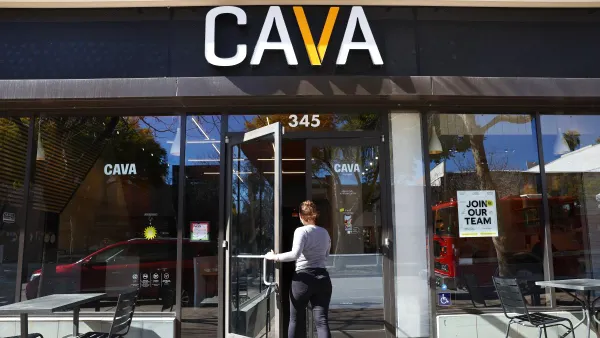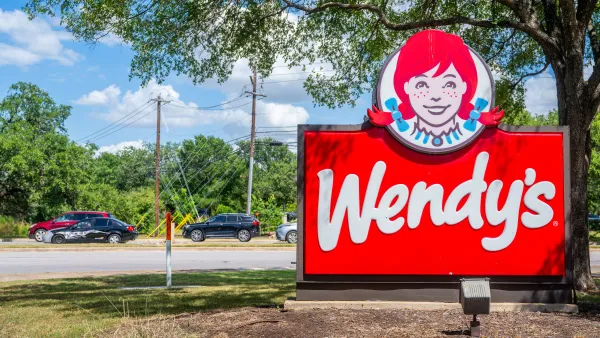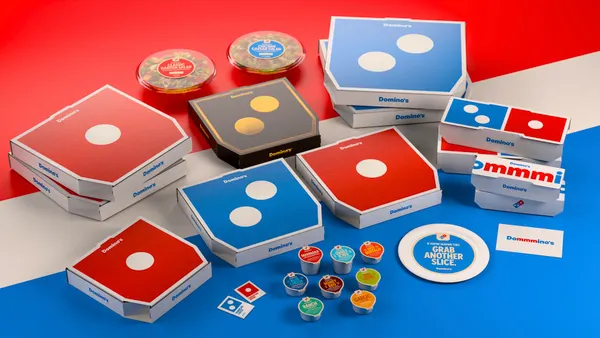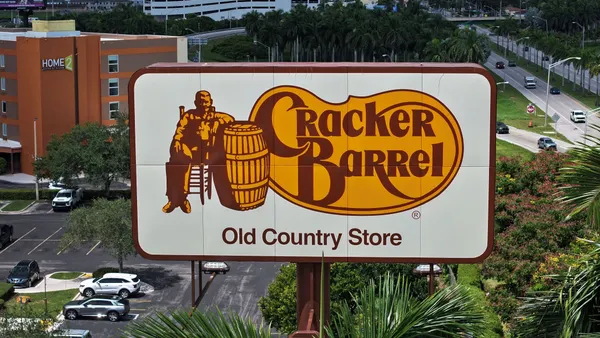Dive Brief:
- Illegal Burger and El Senor Sol will soon sell a CBD sports water in their 11 Denver locations, parent company West Coast Ventures Group said in a press release.
- Puration, a Dallas cannabis oil company that now produces its own line of cannabis food and beverage products, offers EVERx CBD Sports Water with hemp-extracted CBD in three flavors: original, lemon-lime and strawberry-kiwi. The company says company sales skyrocketed 600% since launching EVERx in 2017, according to a separate press release from Puration.
- Partnering with these Colorado restaurants could be the first of many moves to expand EVERx's availability, especially given a new distribution agreement in the southeastern U.S. A healthcare firm has also agreed to pay Puration $1 million to produce a private-label CBD bottled water.
Dive Insight:
A handful of U.S. restaurants have incorporated CBD into their menus — on ricotta toast, in gumdrops and milkshakes. Denverites can add CBD to their coffee and try a CBD donut, while New Yorkers can order flan made with CBD-infused olive oil or spread CBD-laced ghee on their fast-casual Indian food. In the U.K., one vegetarian restaurant adds the ingredient to its entire menu.
Coca-Cola has considered a CBD soda. Constellation Brands, parent to Corona, Modelo, Svedka and Casa Noble tequila, among others, sunk $3.8 billion in a Canadian marijuana producer. Molson Coors Brewing Co. launched a joint venture with another Canadian company to produce cannabis drinks. Lagunitas Brewing, now owned by Heineken, has a line of non-alcoholic THC drinks, according to Bloomberg.
That all is to say: the CBD craze is happening and it's hard to ignore.
West Coast Ventures has boarded the train early, as these products from big brands are still in their infancy, not yet on the market or even developed. Being based in the first state to legalize marijuana gave them a leg-up to the marketplace of ideas and products.
As a flavorless and colorless compound, the non-psychoactive compound CBD seems apt for flavored waters. EVERx, which contains 10 milligrams of CBD per 500 milliliters, according to its website, positions itself as an energy drink for athletes and fitness enthusiasts, along the lines of Gatorade or other enhanced waters.
Electrolyte, alkaline and charcoal-enhanced waters have inundated the sports drink arena, though the science behind them remains murky. Nutritionists still say the best thing to drink is plain old water. CBD water will likely fall into that same category, but that won't necessarily stop consumers from buying into the hype.
While consumer demand rises for CBD products, states are quickly trying to figure out how to regulate them. Hemp farming only became legal again under the 2014 farm bill and only by states and universities. CBD still isn't regulated for food products the same way as, say, citric acid. Additionally, because it's not derived from cannabis, it's not regulated by new state marijuana rules either.
In July the California Department of Health clamped down on CBD food products specifically, saying they fall under the jurisdiction of the state's food and agriculture department — not the recently formed California Manufactured Cannabis Safety Branch. The state said food could use industrial hemp seeds or hemp seed oil but not CBD because the latter has not been approved for human or animal consumption.
CBD food has rocketed to stardom in the Instagram-ready cafes of Los Angeles, and restaurants selling such goods have in some cases had their CBD oils confiscated, according to Eater.
Many products have been scolded by the FDA for making demonstrably false or dangerously misleading health claims. Those snafus have likely hindered the process for manufacturers and restaurants, not to mention consumer perception of their viability.
Still, restaurants are trying to make CBD a thing. Having two chains on board with EVERx water, albeit only in one city, might help propel such products to the front of customers' minds, perhaps to the point that they start requesting them. But the lack of consistent regulation and run-ins with the government even in California, where cannabis was legalized earlier this year, create touchy territory for restaurants to navigate.











